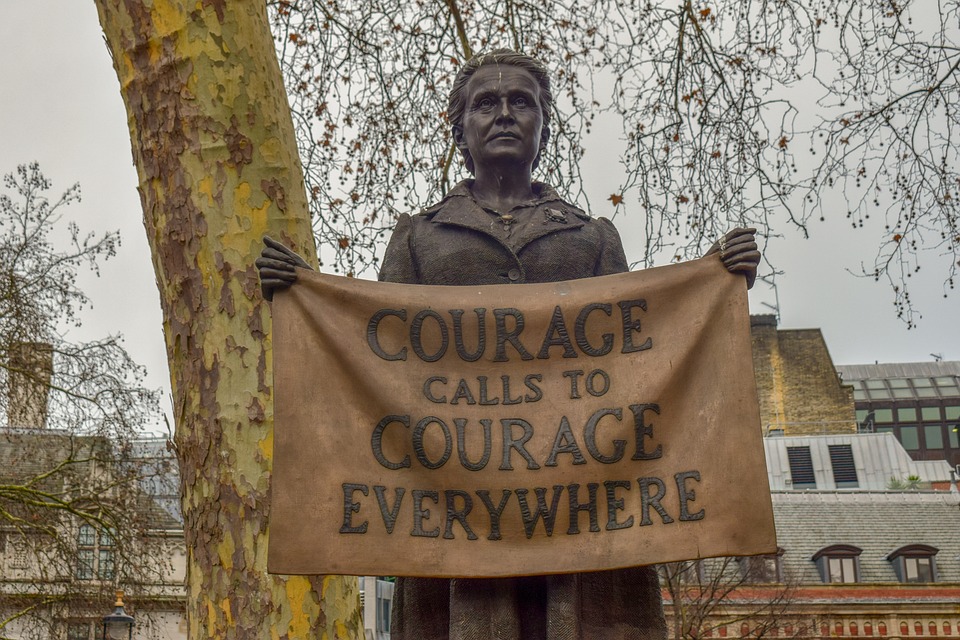The Evolution of Feminist Literature
Feminist literature has a long and rich history, dating back to the 18th century with writers such as Mary Wollstonecraft and Virginia Woolf. These early feminist voices paved the way for future generations of writers to explore themes of gender inequality, patriarchy, and the fight for women’s rights.
In the 1960s and 70s, the second wave of feminism brought about a surge in feminist literature with authors like Audre Lorde, bell hooks, and Adrienne Rich. These writers focused on issues such as reproductive rights, workplace discrimination, and the intersectionality of race, class, and gender.
In recent years, the rise of the third wave of feminism has brought about a new wave of feminist literature that explores even more diverse and intersectional themes. Writers like Roxane Gay, Chimamanda Ngozi Adichie, and Rebecca Solnit have gained popularity for their powerful and thought-provoking works that challenge traditional gender norms and stereotypes.
The Current Landscape of Feminist Literature
Today, feminist literature continues to thrive with a wide range of voices and perspectives contributing to the movement. From memoirs and essays to poetry and fiction, feminist writers are exploring a variety of genres to convey their messages of empowerment and equality.
One of the defining characteristics of contemporary feminist literature is its focus on intersectionality. Authors are increasingly exploring how factors such as race, class, sexuality, and ability intersect with gender to shape women’s experiences and perspectives. This intersectional approach allows for a more nuanced and inclusive exploration of feminist themes.
Another trend in feminist literature is the rise of digital platforms and social media as tools for sharing feminist ideas and stories. Blogs, online magazines, and social media accounts have become popular platforms for feminist writers to engage with their audiences and amplify their voices. This digital landscape has allowed for greater diversity and accessibility in feminist literature, reaching wider audiences and sparking important conversations.
Emerging Trends in Feminist Literature
As feminist literature continues to evolve, several emerging trends are shaping the movement and pushing the boundaries of traditional storytelling. One of these trends is the rise of speculative fiction within feminist literature. Authors are using the genre of science fiction, fantasy, and dystopia to explore feminist themes in new and imaginative ways. Works like Octavia Butler’s “Parable of the Sower” and Margaret Atwood’s “The Handmaid’s Tale” have gained critical acclaim for their powerful critiques of patriarchal societies and visions of alternative futures.
Another emerging trend in feminist literature is the exploration of non-binary and transgender identities. As conversations around gender diversity and inclusivity continue to grow, writers are increasingly featuring non-binary and transgender characters in their works. Authors like Akwaeke Emezi and Casey Plett are gaining recognition for their groundbreaking works that center on the experiences of transgender individuals and challenge traditional ideas of gender.
Voices to Watch in Feminist Literature
1. Carmen Maria Machado – Known for her bold and experimental writing style, Machado’s work often explores themes of queerness, trauma, and the female body. Her debut short story collection “Her Body and Other Parties” was a finalist for the National Book Award and has garnered critical acclaim for its unique blend of horror, fantasy, and feminist themes.
2. Ocean Vuong – Vietnamese-American poet Ocean Vuong has gained widespread recognition for his lyrical and emotionally resonant writing. His debut novel “On Earth We’re Briefly Gorgeous” has been praised for its poignant exploration of family, love, and the immigrant experience. Vuong’s work often challenges traditional notions of masculinity and explores themes of identity and belonging.
3. N.K. Jemisin – With multiple Hugo Awards to her name, N.K. Jemisin is one of the most celebrated voices in speculative fiction today. Her groundbreaking “Broken Earth” trilogy has been praised for its intricate world-building and thought-provoking exploration of power, oppression, and resilience. Jemisin’s work often challenges traditional tropes of the genre and centers on diverse and marginalized voices.
In conclusion, the future of feminist literature is bright and full of potential. With a diverse range of voices and perspectives contributing to the movement, feminist literature is evolving to embrace new trends and explore emerging themes. From intersectionality to speculative fiction, the landscape of feminist literature is constantly expanding and challenging traditional norms. As emerging writers continue to push the boundaries of storytelling and explore new frontiers, the future of feminist literature promises to be both revolutionary and empowering.
